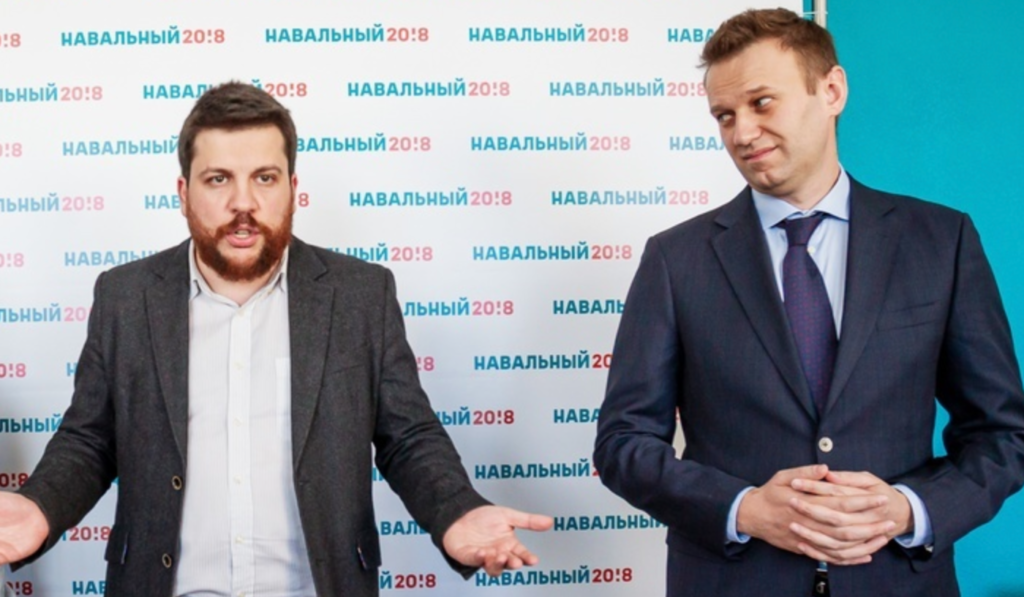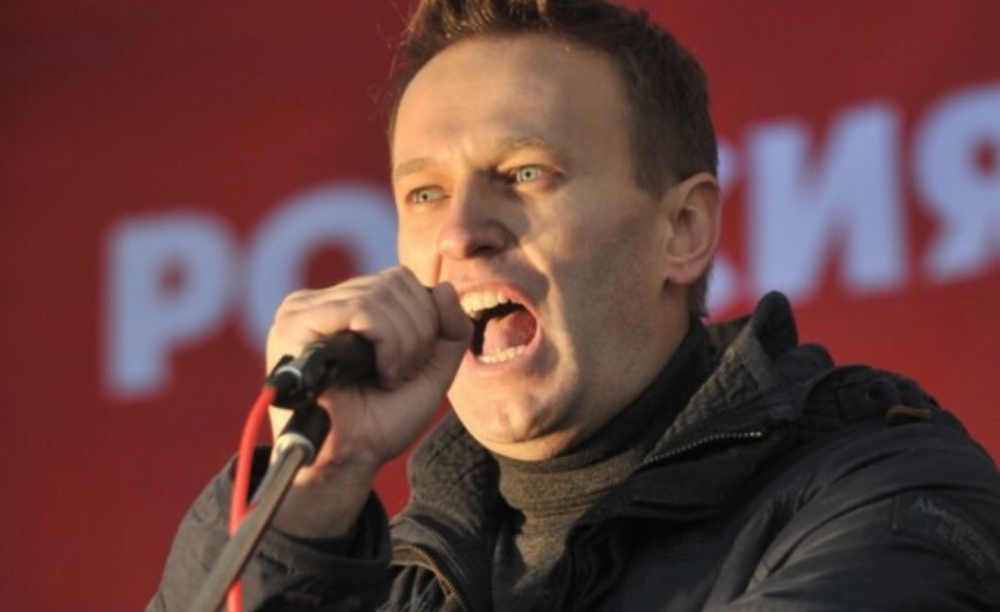The end of an empire begins with a military defeat. The Russian empire will be no exception
Since Russia's full-fledged war on Ukraine began, much has been made of the Russian empire finally collapsing. However, despite warnings that Western sanctions will cripple the Russian economy, we have yet to witness a meaningful impact, with Russia standing firm thus far. In an interview with Natalia Moseichuk, Kasparov told how Russia has already "lost the war."
Moscow turns to regions to replace losses and boost forces in Ukraine
Even though much work remains to be done and the fight is far from over, Kasparov regards Russia's attempted invasion of Ukraine as a failure. Even if annihilating Putin's army in Ukraine would be the ultimate loss, Russia has already suffered a massive defeat.
"A battle defeat is a battle defeat," Kasparov claims. "Losing in battle is always the beginning of the end of an empire."
Take Afghanistan, for example. According to Kasparov, although the Soviet Union's withdrawal of troops in 1989 was relatively smooth compared to America's withdrawal from Vietnam or, more recently, Afghanistan, it nonetheless launched the process of political change. It served as a catalyst for the Soviet Union's demise.
"It laid the groundwork for a new political process to form in Eastern Europe, which later spread throughout the union. I have long maintained that the only way for Russia to have a future is for this war to be the final fight of the Russian Empire. Empires are powerless to resist defeat,” Kasparov claims.
Kasparov believes that even if the empire were to collapse, the world need not be concerned about a geographical collapse of Russia. He went on to warn that if this happens, individual regions will be interested in building their own future, their own way, and that the Russia we know today will no longer exist. It will allow suppressed regions living under Moscow's rule to "build everything basically from the bottom up," according to Kasparov.
Do Russians still believe Crimea is theirs?
As the war enters its sixth month, the question of Crimea becomes more pressing. Following Bucha, Ukrainian officials stated that negotiations were no longer possible and that they would only accept the borders of a 1991 Ukraine, which naturally include Crimea and Donbas.
When asked whether he believes a new government in Russia would recognize the annexation of Crimea, Kasparov stated that he believes a large portion of Russia saw the annexation of Crimea and the war on Ukraine through their own worldview in 2014/15. They, therefore, were unwilling to condemn the Kremlin for its previous war crimes.
Russian opposition shows it doesn’t understand situation, Pastukhov says
Before the full-scale invasion, the Russian opposition hadn't been much help in addressing the situation. Alexei Navalny's position on Crimea has been far from popular with Ukrainians, refusing to clarify whether he would return Crimea to Ukraine if elected but instead stated, "for the foreseeable future, will remain a part of Russia," Navalny declares in an interview, 2014.
Moreover, in an interview with BBC Russia in 2019, Leonid Volkov, managing director of the Navalny movement, was asked, "Who does Crimea belong to?" He awkwardly replied: "Crimea should be Crimean and distinct from both Russia and Ukraine. It requires a new type of political independent framework, established from the ground up by the next generation of politicians capable of resolving the Crimean issue." Proving, here, five years on from the annexation, the Russian opposition was still calling for Crimea not to be returned to Ukraine.
However, things have begun to shift in Russia since the full-scale invasion of Ukraine, and Kasparov believes that the majority of civilized-thinking Russians unquestionably feel Crimea should be returned to Ukraine.
"We cannot study Alexei Navalny's point of view because he is in prison, but Leonid Volkov, indicated, during a debate with myself, that the matter was closed after 24 February and Crimea is Ukrainian,” told Kasparov.
It is true, Volkov, has revised his stance since 2019 and stated that he has no trouble saying Crimea is a part of Ukraine.
"Crimea and Donbas are internationally recognized territories of Ukraine; they must be legitimately returned to their lawful borders," he stated.

However, in May 2022, Volkov told how he believed this issue will not be resolved through military means.
Volkov tells how its fate is determined by how the war ends. "In many ways, Putin's 'major criminal blunders' have made future regulation of the peninsula much easier," he tells.
Now, Russian opposition parties are looking into it further, wondering how the liberation of Crimea would actually take place; would there be some kind of special operation? How should they manage citizens, and what level of culpability should be placed on the Russian people?
A document that denounces Russia
Kasparov and his team are creating a strategy to counterattack all measures and show the world that there are still civilized Russians willing to criticize the Russian Federation for its war crimes.
He and his team are developing a strategy to allow civilized Russians to travel freely in Europe in exchange for signing a formal document condemning Russia's actions in Ukraine. However, he feels that, while many Russians have expressed their support for Ukraine, it is a whole different thing to ask people to sign a legally binding document, knowing that this is when many nuances will emerge.
"We provide a simple solution, a signed declaration claiming:
By signing this document, people denounce three things:
-
The war is a criminal act.
-
The Putin regime is not legitimate.
-
Ukraine is united.
Western Support: is it starting to crack?
Winter is coming, and cracks in Europe's support for Ukraine are indeed showing. A lack of support for an embargo on Russian gas, packets of sanctions that take weeks to agree, and calls to soften several parts of sanctions, such as Lithuania's blockade of goods to Kaliningrad (called on by Sholtz), proves although support comes in the form of words for Ukraine, actions are somewhat uninspiring. Kasparov tells how this is a time when we must watch carefully and hold these countries accountable and if they succumb to Putin's propaganda.
"Putin is openly betting that as we come closer to winter, high energy prices and inflation will diminish support," argues Kasparov.
Kasparov describes how France, Germany, and Austria vow to be "with" Ukraine, ready to confront Russian aggression together, but the picture appears to be somewhat different.
"They tell how it is 'a terrible conflict, but still, Ukraine cannot win.' Of course, they claim to want Ukraine to win, but they always bring up issues like the size of the Russian army, Russia's resources, and the quantity of missiles at its disposal," tells Kasparov.
It could be argued that, although Russia does, in fact, have a bigger army with more resources and missiles at its disposal, it is not a deciding factor in this war. Thanks to the West's support, mainly from the US, Eastern Europe, and the UK, Ukraine is in constant supply of NATO standard weapons and the highest forms of intelligence.
Interview: What’s going on in the White House? Why won’t Biden hand over long-range HIMARS?
Moreover, Ukraine is transitioning from obsolete Soviet-era weapon systems to top-tier NATO-standard equipment. And Ukraine's success with HIMARS illustrates that having more resources than the opposing army is not a winning strategy, given that the Russian military has not gained significant victories in both July and August.
Read More:
- Garry Kasparov: A referendum on the values of Europe
- Garry Kasparov: Navalny is wrong on not arming Ukraine
- Why Khodorkovsky and Navalny will return Crimea
- Kasparov responds to Navalny and Khodorkovsky: Russia has to return Crimea to Ukraine
- Winter is coming. Putin’s next gamble will be to crush European solidarity
- Nearly 60% of Russians support Putin’s war against Ukraine
- No reason for Russia to disintegrate either under Putin or after him, Navalny movement leader says
- Garry Kasparov: If Putin’s nuclear blackmail works against Ukraine, he will use it next in Poland or Estonia

